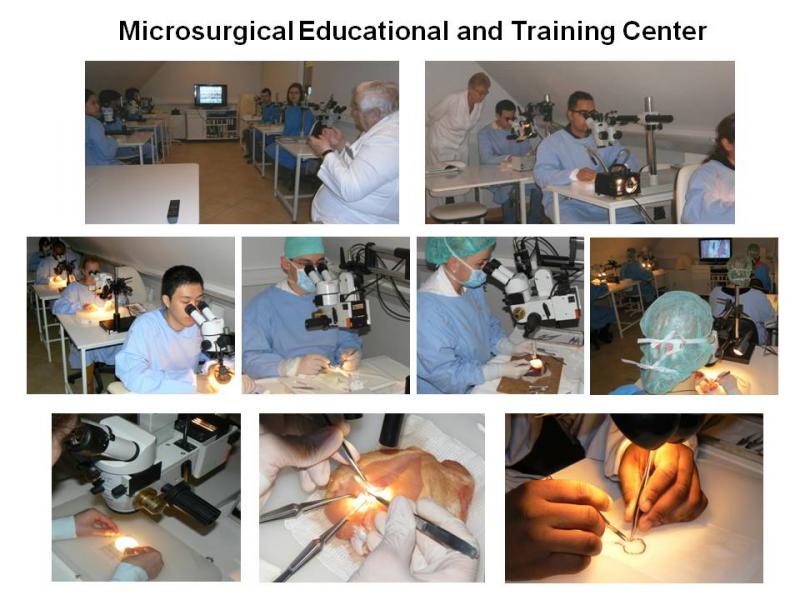Microsurgery - in 'mini' phrasing
“Microsurgery is a special part of surgery. It is surgery, since the basic surgical skills are prevailed. It is special, since it differs in several areas from the whole. Its cultivation is only possible with special customized microscopes.
The main differences are sought in different dimensions. For example, if it is necessary in the macroscopic surgery, a suture can be replaced most of the times. When we would like to replace a suture in a vessel with external diameter of 1 mm, then the risk of creating an uneven edge on the vessel is very high, which would be very hard to correct, or even it would be impossible to repair. Therefore we must imagine during the procedure the next act before we make a move, for example, where the needle should penetrate the wall of the vessel, where it will exit the wall and the stitch is at identical points or not, etc. Only then we can implement the process. After sufficient amount of practice it will almost imperceptibly take place.
We have to understand and keep in mind, that we cannot make mistakes, since there are not or just only a slight possibility to make a correction.
Most of the instruments are adopted from macroscopic surgery into microsurgery with one or two exemptions. Since they are high vulnerability, these fine instruments have to be handled, cleaned and sterilized with care.
The handling of the microsurgical suture material also differs from the accustomed. They are very thin, 10-11/0, and some of their diameter is 125 μm (only visible under operative microscope), their handling with forceps requires great experience, since even one inadequate grip can cause deformity in the structure of the thread, endangering the outcome of the operation.
The fine movement can be learned; however the teaching method differs from the imitative methods.
The regular clinical and experimental microsurgical work requires some behavioral restrictions, such as limitation in lifting heavy weights, coffee, nicotine and alcohol consumption, resting is necessary.
The successful work provides extraordinary experience to those, who practice this field.”
Prof. Istvan Furka, professor emeritus (1935-2021)
former head of the Microsurgical Education and Training Center at the Department
